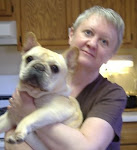SOFT STOPS
Soft stops are your early warning
system, gentle reminders from your body that it's time to stop eating. Because
they don't hurt much, they're easy to ignore.
Your job is to recognize them (even though they may vary by the meal or
the day) and heed them every time you
recognize them. They can include:
Mild
queasiness
Fullness
or pressure in the back of the throat
Difficulty
swallowing
Burping
(or the urge to burp)
The
urge to take a deep breath
The
urge to cough or clear the throat
A
sigh
Hiccups
Pressure
in the chest
Watering
eyes
Runny
nose
Left
shoulder pain
A
sneeze
Excess
saliva
A
full feeling just below the breastbone
A
sudden distaste for the food you were enjoying a moment before
As soon as you notice one of these
signs, stop eating. If you go on eating past this point, you won't be changing
your eating behavior and you're likely to get into trouble…that is, a hard
stop.
HARD STOPS
Hard stops are the equivalent of
running into a brick wall. They can happen without any apparent warning, but
usually you have sped heedlessly past a soft stop before you hit the wall. Hard
stops are the painful and sometimes embarrassing reminders that you have eaten
too much, too fast, in bites that were too big, without chewing enough. They can
include:
Chest
pain or tightness (note: this sensation is happening in your esophagus, not
your heart, but if you experience any symptoms of cardiac arrest, such as severe,
squeezing pain that radiates down an arm, put down that fork and dial 911)
Feeling
like you have a rock in the back of your throat
Food
stuck in stoma (for me, that involved pain between my breasts, and when the
food moved on through into my lower stomach pouch, it felt like a drain that
suddenly opened)
Productive
burps (PB's or regurgitation)
Sliming
(excess saliva and mucus that's so profuse that you have to spit it out)
Do not go on eating after you
experience a hard stop. When the hard stop is over, you may feel fine and want
to go back to your meal, but you have irritated your upper gastrointestinal
system and will just be perpetuating the PB or other response if you continue
to eat. You’ll end up in an endless cycle of eat-pain-eat-more pain. I strongly
recommend following a liquid diet for 12-24 hours after each and every hard
stop experience. For me, that alone is a motivator because after surviving my
post-op liquid diet, I never wanted to drink a protein shake for the rest of my
life!







6 comments:
I love this post!! I'm going to pay much more attention to see if I can spot some of these signs as I'm eating. :) Thanks for sharing
Thanks, Jennifer. Hope it helps!
Thanks for all the information. Can you share if "Snacking" was ever any problem for you and how did you control it?
If you mean snacking as in grazing all day long, that hasn't been a big problem for me. I've been a snacker in the past and I'm still one now, but my snack foods now are healthier ones and I plan the snacks into my daily eating instead of just grabbing whatever's handy. If you graze all day long, I would suggest that you make sure that your home, workplace, car, etc. are free of junk food. Also, give some thought to whether you're snacking/grazing out of boredom and come up with a list of alternate activities.
Thanks Jean! I used to have a runny nose as a soft stop and it disappeared. Thought I was on my own. Never new needing to take a deep breathe is a soft stop. Thanks for helping me find my new soft stop!
Wendy
Wendy, you're very welcome!
Post a Comment